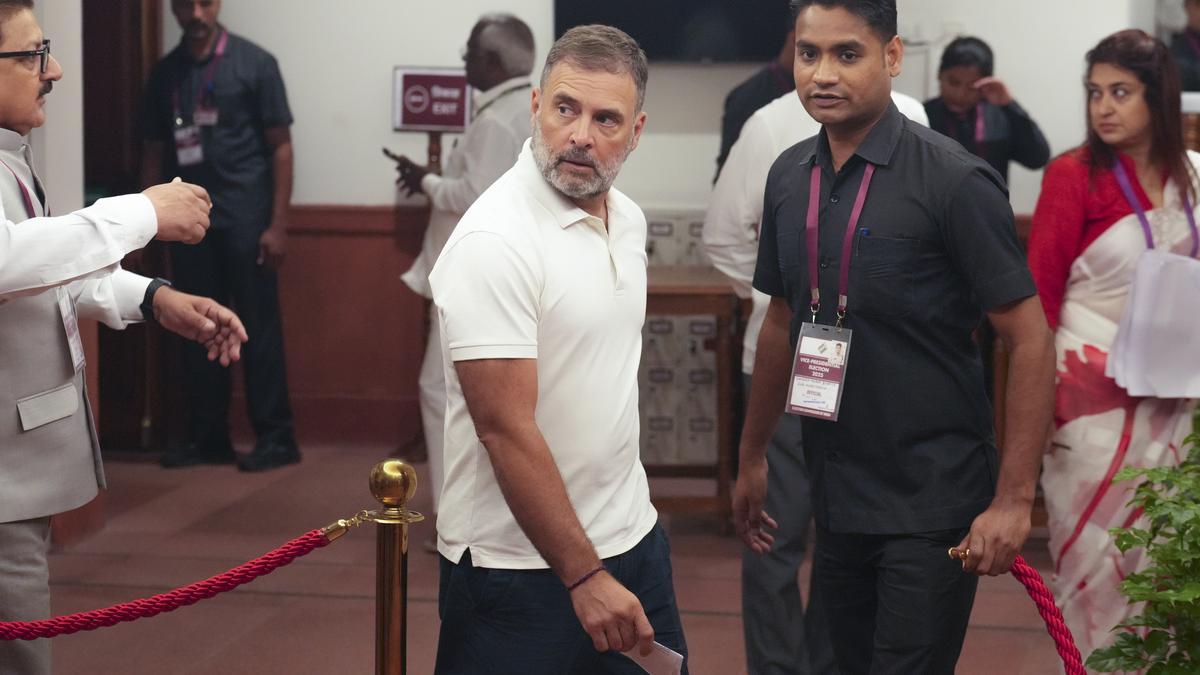Now Reading: Opposition Struggles to Present United Front in Vice Presidential Polls
-
01
Opposition Struggles to Present United Front in Vice Presidential Polls
Opposition Struggles to Present United Front in Vice Presidential Polls

Quick Summary
- C.P. Radhakrishnan, the BJP-led NDA’s nominee, won the 2025 Vice Presidential elections with 452 votes, exceeding NDA’s combined strength of 439 MPs in both Houses by 13 votes.
- The opposition-backed candidate, Justice B. Sudershan Reddy, lost by a margin of 152 votes – the narrowest defeat for an Opposition candidate as the Modi government came to power.
- Despite no whip being issued for these polls, there was unprecedented attendance among Opposition MPs due to concerted efforts from their leadership.
– Trinamool Congress MPs voted despite health issues; several Congress MPs traveling abroad returned to vote.- Frantic coordination ensured voting by traditionally absentee MPs like AAP’s Harbhajan Singh and newly elected Rajya Sabha member Kamal Hasan.
- As per claims made on social media by Congress leaders like Jairam Ramesh, all 315 expected Opposition MPs participated in voting.
– However, discrepancies were observed: invalidated votes (15) and suspected cross-voting created doubt about unity within the Opposition camp.
– No party officially acknowledged cross-voters but acknowledged certain errors leading to invalidation.
Indian Opinion Analysis
The Vice Presidential election results highlight two key dynamics shaping India’s political landscape: organizational discipline within parties and gaps in opposition cohesion that limit collective bargaining power against a unified ruling coalition.
For the NDA, exceeding its natural numerical advantage indicates effective outreach beyond formal alliances-possibly drawing independents or neutral players towards its fold strategically. This reinforces perceptions of strong legislative control amidst rising opposition scrutiny during critical parliamentary sessions.
On the other hand, while achieving an unprecedented turnout is commendable for Opposition unity-building efforts amidst logistical challenges (e.g., travel or health constraints), lingering questions regarding invalidated ballots and presumed cross-voting underscore fragility within unified blocs-a recurring challenge during key polls under current governance arithmetic.
The narrowing margin compared to prior elections signals some level of consolidation among opposition ranks but still highlights systemic imbalances favoring entrenched ruling coalitions over fragmented adversaries. While symbolic unity was achieved through operational rigor this time around-organizational consistency remains vital ahead across forthcoming tests shaping wider policy outlook/ democratic deliberations
Read more: Source

























